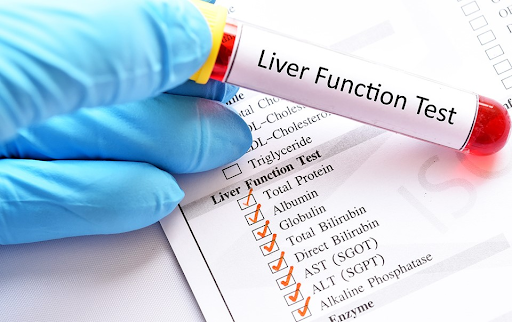Why A Routine Liver Function Test Is Important

Routine health check-ups are pivotal for maintaining overall well-being, and among the array of tests conducted, liver function tests (LFTs) hold a significant place. The liver, an organ performing multifaceted functions in the body, requires regular monitoring to ensure its optimal performance. In this comprehensive guide, we delve into the importance of routine liver function tests, shedding light on their necessity, significance, and how they contribute to safeguarding one's health.
Functions Of The Liver
The liver, often hailed as the body's chemical factory, plays a pivotal role in numerous metabolic processes. From detoxification to protein synthesis, bile production to glucose regulation, the liver's functions are diverse and crucial for maintaining overall health. Moreover, it aids in the digestion of fats and stores essential vitamins and minerals. The liver's remarkable versatility underscores the importance of regular monitoring through liver function tests to ensure its optimal functioning.
Common Liver Conditions And Symptoms
Understanding common liver conditions and associated symptoms is paramount for early detection and timely intervention. Conditions such as hepatitis, fatty liver disease, cirrhosis, and liver cancer can significantly impact liver function and overall health if left unchecked. Symptoms may vary but can include fatigue, jaundice, abdominal pain, and unexplained weight loss. Awareness of these signs underscores the importance of regular liver function tests in preempting potential health complications.
Importance of Regular LFT Test
The importance of liver function tests cannot be overstated in maintaining optimal health. These tests serve as early warning signals, enabling healthcare providers to detect abnormalities in liver function before they manifest as severe health issues. By identifying deviations from normal liver function early on, individuals can undertake preventive measures and lifestyle modifications to mitigate the risk of developing serious liver conditions.
Who Should Get a Routine LFT Test?
While routine liver function tests are beneficial for everyone, certain individuals are at a higher risk of developing liver-related complications and should prioritize regular testing. Those with a history of liver disease, alcohol abuse, obesity, diabetes, or exposure to hepatitis viruses should undergo periodic liver function tests as part of their preventive healthcare regimen. Additionally, individuals taking medications known to affect liver function should consider regular monitoring through LFTs.
Preparing for a Liver Function Test
Preparing for a liver function test involves minimal hassle but can significantly impact the accuracy of the results. Healthcare providers may recommend fasting for a few hours before the test and abstaining from alcohol and certain medications to obtain accurate readings. Following these preparatory steps ensures the reliability of the liver function test results, facilitating informed decision-making regarding one's health status.
Understanding the LFT Test Results
Interpreting liver function test results may seem daunting, but understanding key parameters can demystify the process. Components such as alanine aminotransferase (ALT), aspartate aminotransferase (AST), alkaline phosphatase (ALP), and bilirubin levels provide insights into liver health and function. Deviations from normal ranges may indicate liver damage, inflammation, or impaired function, necessitating further evaluation and intervention.
Lifestyle Changes to Improve Liver Health
Incorporating lifestyle changes is paramount for maintaining liver health and optimizing liver function test results. Adopting a balanced diet rich in fruits, vegetables, lean proteins, and whole grains can promote liver health while limiting alcohol consumption and avoiding tobacco use are crucial for overall well-being. Regular exercise, adequate hydration, and maintaining a healthy weight further support liver function and mitigate the risk of liver-related complications.
Conclusion
In conclusion, routine liver function tests are indispensable tools
for safeguarding one's health and well-being. By monitoring liver
function regularly, individuals can detect abnormalities early on,
enabling timely intervention and preventive measures. Understanding
the importance of liver function tests, recognizing common liver
conditions and symptoms, and embracing lifestyle changes empowers
individuals to take charge of their liver health and lead healthier,
more fulfilling lives. Prioritizing preventive healthcare through
routine liver function tests is not just prudent; it's essential for
longevity and vitality. Schedule your liver function test today and
embark on a journey toward optimal health and wellness.
In essence, the importance of LFT tests cannot be overstated. They
serve as critical indicators of liver health, allowing for timely
intervention and preventive measures. By prioritizing routine liver
function tests and adopting healthy lifestyle practices, individuals
can proactively safeguard their liver health and overall well-being.
Don't wait for symptoms to appear; take charge of your health today
with regular liver function testing. For those interested in a liver
wellness test, consider booking at Asto Labs for comprehensive
insights into liver health.





